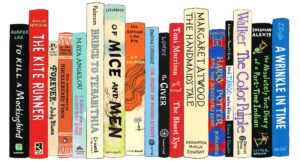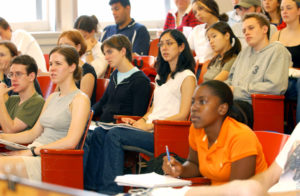As for academics as “condescending elites:” Give me a break.
The Trump Administration’s efforts to revisit the tired but durable American pattern of attacking Harvard and other American universities is brutal, and frankly embarrassing for the rest of the world to witness. Our massive private and state systems are the envy of the world. The cuts in research dollars and many universities will do harm. But the effort to ruin higher education will not succeed. Fortunately, American instructors have some immunity to this kind of political hate.
Why a man with a slippery grasp on reality has decided that Harvard University in particular represents the antichrist is both nonsensical and incredibly mean-spirited. After all, it is one of the world’s great universities. Moreover, the standard analytical point too many others carelessly make is that Harvard and other institutions represent a liberal “elite.” Tell Skip Gates he is an elitist and get ready to be set straight.
As the conventional logic goes, the rest of America is resentful of what the conservatives William F. Buckley and George Will have called the “condescension” of academics. In this familiar fantasy, academia misuses its privileged position to bend the young minds toward secular and collectivist ways of thinking. Who knew that the effectively fragmented academic world was so unified in its efforts? Give me a break.

In one form of another this uniquely American complaint is older than the republic, carried in the Puritanism and the anti-intellectualism of early settlers. In addition to the endemic racism fostered by the first Americans, this additional and deeply embedded incapacity remains as a blind spot that makes reading, advanced learning and education suspicious experiences.
It has always been with us. Key thinkers like historian Richard Hofstadter have pointed out a kind of bedrock stance against intellectuals mostly on the political right and, by extension, millions of Americans. Even so, the nation’s educators have tried to shed light on the dark celebration of ignorance on subjects ranging from the age of the planet to intricacies of human sociology. Red states are trying to impose curriculum guidelines at various levels mandating courses in civics. Astonishingly, Florida’s political leaders even question the legitimacy of the social sciences.
Speaking broadly, knowledge workers labor under a cloud of suspicion fed by a culture that celebrates making and promoting more than knowing. But in truth, we could use more students of the human condition and perhaps fewer devoted to the finer points of selling stuff.
Though the damage of cancelled grants to institutions and students has been devastating, the hapless functionaries of this administration will loose this battle, as the Puritans, Know-Nothings, nativists, William F. Buckley, McCarthyites, Moral Majority members and Christian nationalists did in earlier American spasms of retribution against American educators.
As for academics as condescending elites: I’ve studied with some of the most brilliant people in my own field, none of whom could begin to match the arrogance of the expense account workers who feed the nation’s bloated consumer culture. An assistant professor at most institutions is probably going to make less than a licensed worker in the building trades. If we really want to experience elites at work and play, stay a night or two in New York or Chicago and have meals in their bloated expense-account restaurants. Attending an academic conference in one of these cities was like visiting a posh land of a privileged class of managers and executives. Like hundreds of other academics momentarily dispatched to a convention along the unfamiliar Dubai of Chicago’s lakefront, I was lucky to have my public college cover half of my expenses for one three-day conference.

Though Donald Trump would like to change it, education in the U.S. is decentralized, with states and local districts holding most of the power of control. To be sure, attainment levels in K-12 American public education often compare unfavorably with other peer nations: a legacy of distractions from market-totems like smartphones, as well as ingrained suspicions about books, curriculum and the narratives of modern history. But the nation’s crown jewels remain in the 5000-plus colleges and universities, who generally retain a degree of autonomy to develop programs and degrees mostly as they see fit, within broad accreditation guidelines. This process is duplicated in the academic freedoms of individual faculty members to teach and develop research using their expertise and years of graduate school. To the nation’s eternal credit, the authoritarianism of this administration cannot easily reach into most university classrooms. For the most part, academics will continue to profess their subjects in accordance with their professional expertise and using the standards of their disciplines: a strength I was reminded of after teaching for a year within an uncomfortably tight pecking order within a British University.
The American protection of an instructor’s classroom is as it should be, since the nation is momentarily misguided by an administration headed by a figure who generally does not read, makes up fantasies in lieu of evidence he cannot understand, and at times disappears behind a word clouds of near-total incoherence.


